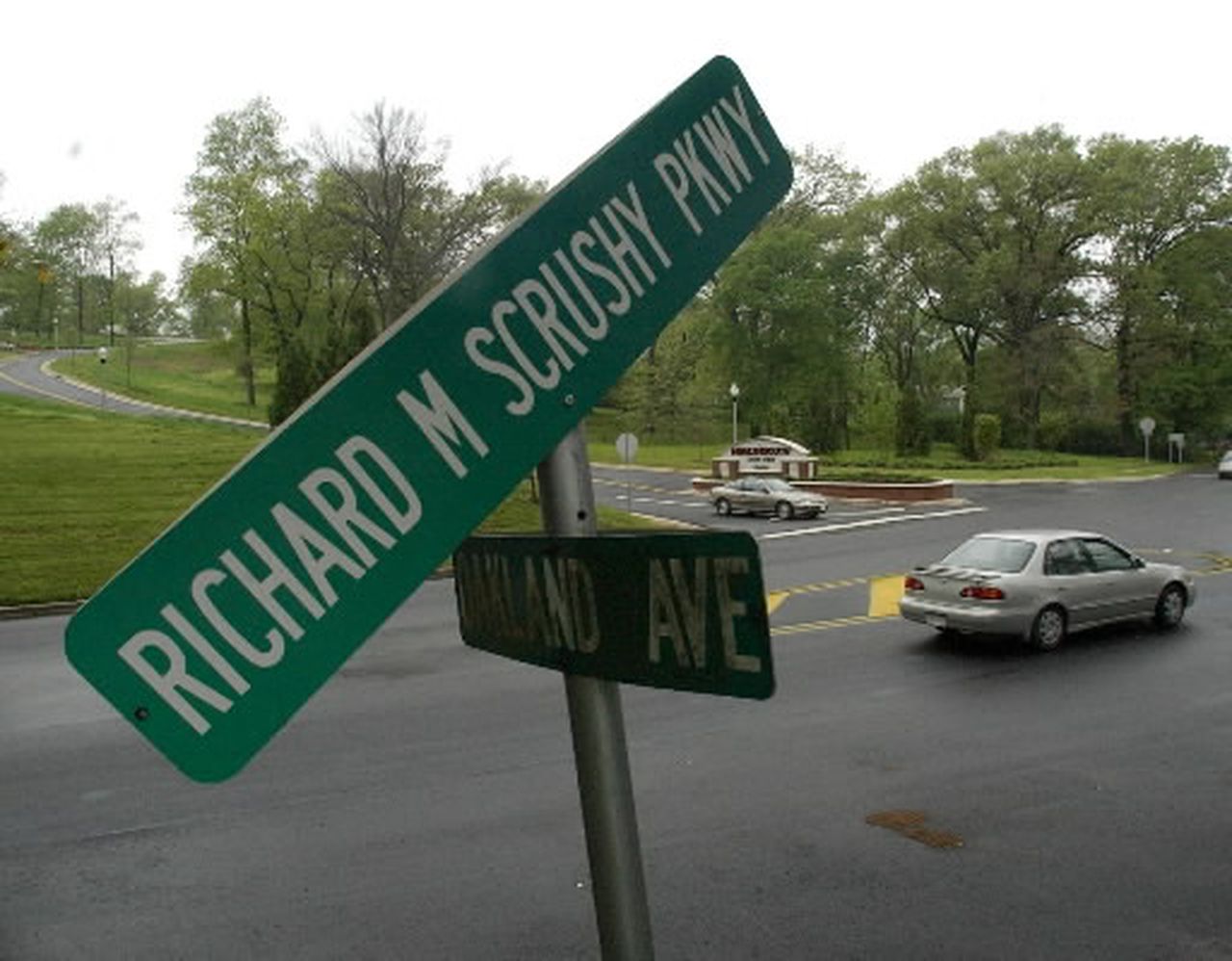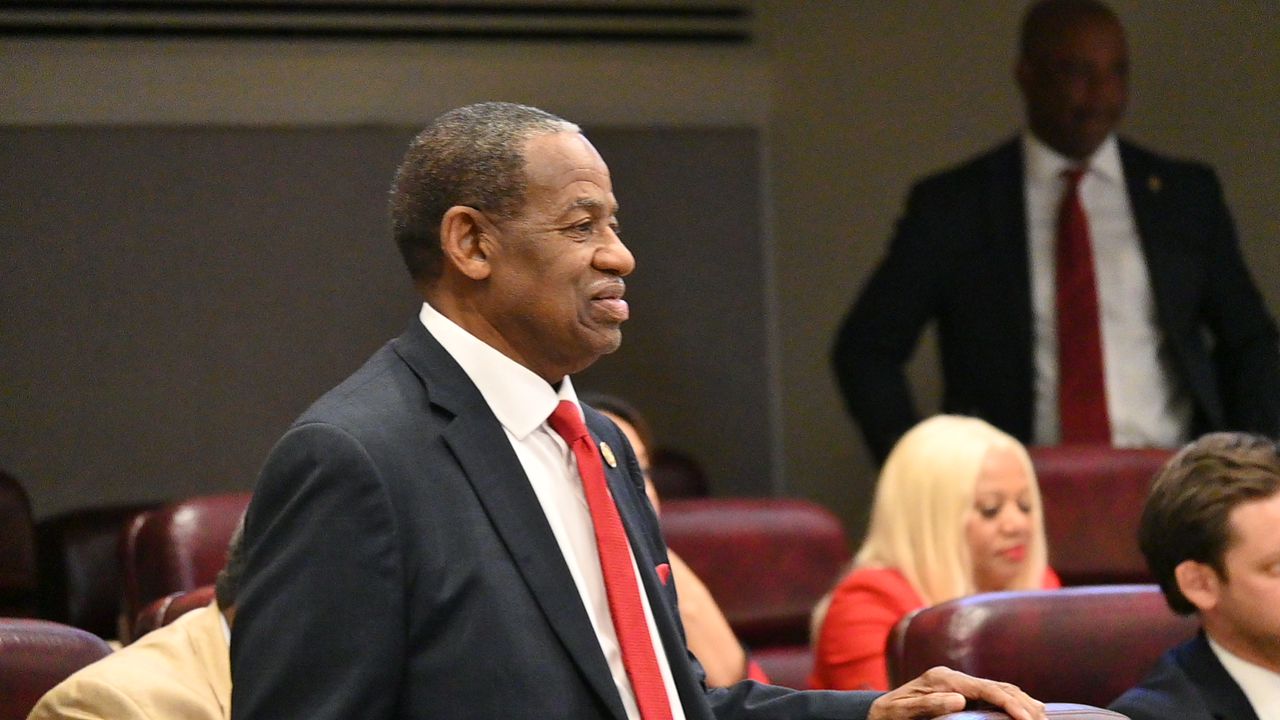Should Birmingham remove disgraced lawmaker’s name from baseball field?
It was just over a year ago that youth baseball players, alumni, parents, and community members gathered to dedicate a southwest Birmingham ball field to honor a man for his years of dedication to youth sports and positive enrichment.
A sign declaring the Fred Plump Athletic Fields at Lowery Park was unveiled in March 2022.
Now the honoree, state Rep. Fred Pump, faces time in federal prison. He resigned from the legislature this week and admitted his role in a scheme to siphon public money from the nonprofit sports organization he founded.
With his guilty plea on charges of conspiracy to commit wire fraud and obstruction of justice, Plump joins the notorious ranks of Birmingham-area public officials and other high-profile individuals enshrined on public landmarks only to have their stellar reputations tarnished by scandal.
At Lowery Park, the premises are under the authority of Birmingham’s Park and Recreation Board. Ronald Mitchell, the board’s chairman, told AL.com this week that the board will discuss whether to remove Plump’s name from the ball field.
“We are going to have to have a meeting about that,” Mitchell said Thursday. “We are going to have to get with the law department and they will have to advise us on what steps to take.”
Plump’s legal troubles raise a familiar question about what to do with public spaces that bear the names of individuals who have fallen from honor. Plump is alleged to have diverted $200,000 of state money that was allocated by State Rep. John Rogers to support Plump’s Piper Davis Youth Baseball League and instead gave it to Rogers’ legislative assistant.
Natalie Davis, professor emerita of political science at Birmingham-Southern College, said the fate of Plump’s position of honor at the park would likely be decided by public opinion voiced to city officials.
“He did lots of good things with the young people, and you just have to create a ledger and see where it comes out,” she said. “He’s quite likable, so I can’t see him have many knives out for him. We’ll have to wait and see. I’m not convinced that there will be an outcry.”
Plump incorporated his youth league in 2013. It was named after Lorenzo ‘’Piper’’ Davis, a former Negro League baseball player who grew up in Piper, a small mining community in neighboring Bibb County, before playing for the Birmingham Black Barons in the 1940s.
Affectionately known as “Coach,” Plump was a staple in youth sports, and in civic and political circles throughout Jefferson County. He is a retired Birmingham firefighter and Army veteran. A perennial candidate, Plump sought several public offices in Fairfield, Jefferson County and the state legislature before finally winning his first election to the state House of Representatives in 2022. His resignation came less than six months after he took office.
Alabama State Rep. Fred Plump, D-Fairfield, resigned from the legislature this week and admitted his role in a scheme to siphon public money from the nonprofit sports league he founded. (John Sharp/[email protected]).
Officials in Birmingham and Jefferson County have faced similar questions in the past about what to do with public honors and dedications when their namesakes fall from grace.
The Jefferson County Board of Health in 2008 stripped the name of former county commissioner Chris McNair from its West End clinic following his 2006 conviction on federal bribery and conspiracy charges.
In 2013, the county commission removed the name of their longtime colleague Mary Buckelew from a parkway in the district she previously represented in north Jefferson County. Buckelew in 2008 pleaded guilty to obstruction of justice and was given probation for lying to federal authorities about receiving gifts from an investment banker doing business with the county.

A street sign marking Richard M. Scrushy Pkwy. stood crooked as Richard Scrushy faced federal fraud charges. (Birmingham News archive Bernard Troncale)Birmingham News archive Bernard Troncale
David Carrington, who was the commission president at the time, said then that it was bad policy to name public amenities after living people. The former commissioner still holds that view more than a decade later, particularly when it comes to celebrating public officials for the work that they were elected to do.
“I stand by what I said,” Carrington told AL.com. on Thursday, “whether it’s Richard Scrushy, or Mary Buckelew, or Don Siegelman or Roy Moore. This wasn’t a Republican or Democratic issue, this was a public official issue.”
Carrington in 2015 unsuccessfully championed a move to remove the framed portraits of former commissioners convicted of crimes from the gallery outside the county commission chambers. In all, six former commissioners were convicted of crimes either during their tenure or afterward.
While many disgraced leaders have had their names chiseled off most of their former public honors within Jefferson County and the city of Birmingham, at least one has escaped attention.
Jeff Germany Parkway, just off Cherry Avenue in Birmingham, remains named for the former Jefferson County commissioner who in 2006 went to federal prison for misusing public funds for personal gain.
One of the most high-profile examples of sullied names involves businessman Richard Scrushy, the founder and former CEO of Healthsouth. Before his 2006 conviction on bribery charges in a federal case that also brought down former Alabama Gov. Don Siegelman, Scrushy was the namesake of several public honors around the region, including in Vestavia Hills and Fairfield.
Vestavia Hills named the public library after Scrushy and hung his portrait at the entrance after his company donated land for the facility. The city peeled off his name following the federal conviction.
Likewise, Fairfield City officials in 2007 stripped Scrushy’s name from one of the city’s busiest highways.
D’Linell Finley, adjunct professor of political science at Alabama State University and a longtime political observer, underscored Davis, saying Plump’s community popularity might spare him the additional scorn of having his name removed.
Finley said he generally objects to stripping away past honors. The naming represents a moment in time, and a period of good service that has already been rendered, he said.
“Let the name stay there until you determine that it is necessary to make a change,” he said.
However, Finley warns that there is always a risk when honoring living people with permanent tributes.
“As long as a person is living that life is unfinished, and you don’t know what can happen between now and the time they are called home from this earth,” he said. “A person can literally be a saint today and then sometime in the near future can be the devil. As long as we live there is always the potential to stumble.”
